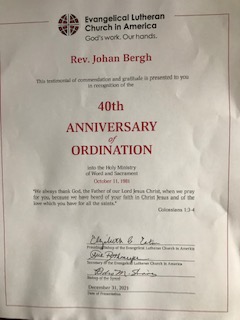Field Notes from a Religion-Less Christian
November 4, 2021
On Coming to Faith
Who am I?
Where do I belong?
What is the meaning of my life?
What is to become of me?
Identity.
Community.
Purpose.
Destiny.
These questions have for years been a guiding principle for my engagement with any and all divine relationship to my very human, that is to say mortal, life.
These questions are answered but always remain and are revisited daily, either spoken or unspoken.
These questions drive commerce and economy, power and politic, personal relationships, psychology and mental health. They drive individual as well as nation-state wellbeing.
It is a mistake to think that I as an individual have any autonomy or agency in forging the substance of the content that might be an answer to any of these questions. The only hope of an answer, a resolution, is to find, to discover, that I have no choice in the matter of determining any answer. Instead, all are answered for me. In other words, there is a fundamental orientation to these questions that can (and must) be appreciated and then appropriated in order to find not only a personal peace but also a social justice.
This orientation, a way of positioning oneself, is to allow to be reversed what is our natural inclination. Naturally, we are the center. But this now is to be taken out of the center and have placed another there. I will cease to be the subject of the sentence and instead I will be the object. I am not the Subject and Another, and all, the Object. Instead, Another, and all, is (are) the subject and I am the object.
This is not to turn to Determinism, breeding then Stoicism. This is rather a turn to Predestination producing Hope.
By nature we are wont to control each of these four dimensions or areas of our life. We are driven to be the Subject. When we see we cannot be, we do not give in. When a word is given that is a Promise it is too good to be true and we push back because it is not self-produced. Until, what? Until it is too good not to be true. And so, then, we do not give in but rather we are done in. We are taken over. Rather like falling in love, we have no choice in the matter and now, then, finally, this inability to choose is the best state of affairs, the best human condition, possible [I’m reminded of West Side Story’s Maria singing to Anita that Maria’s love for Tony is impossible not to engage, impossible to relinquish no matter the circumstance. It is out of Maria’s control (“I have a love, and it’s all that I have, right or wrong…”). She has been done in]
Identity, Community, Purpose and Destiny are not mine to produce? Who can live with that state of affairs? Well, we see, we cannot! We will not! Something, Someone, must die in order for this Life to live! So when we hear, then, Jesus speak of dying to self we see what it is of which he speaks. Self is no longer Subject. Another is Subject. Call this God.
And Jesus called God “Father,” which meant only, simply, profoundly that the controlling one, this Another, is unconditionally merciful and compassionate. And so, this death to self is not suicide, but rather homicide. And God, the merciful one, is the perpetrator, the killer. God kills, and makes alive (1 Samuel 2:6, Exodus 4:24 passim). And homicide is not God’s choice, an option out of many. God cannot and will not do other than give life to creation, and when our life (oh, we are lively in our spiritual calisthenics!) gets in the way of God’s life for us, watch out. God will use death to give life. God cannot raise a live body. It is not dead. Only dead bodies get raised.
This Another, this Other, without regard and reservation, gives away identity, community, purpose and destiny. Receiving all this, having our Self-Project done in so only Another remains for us, is called faith.


